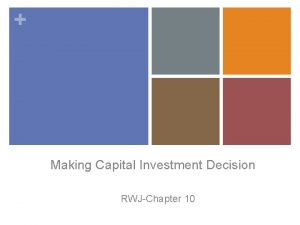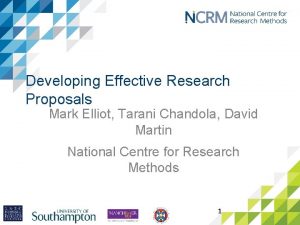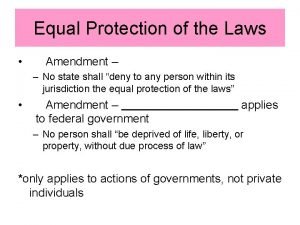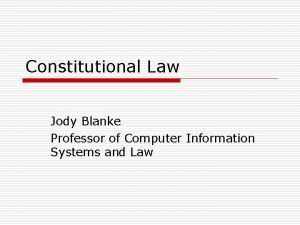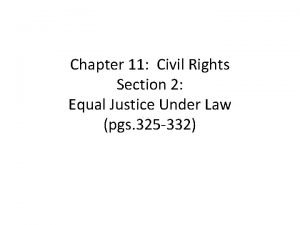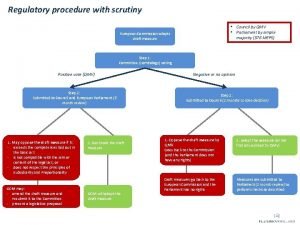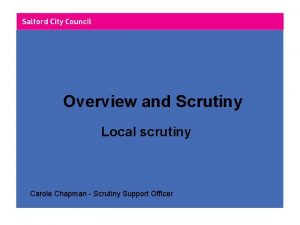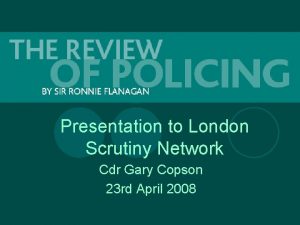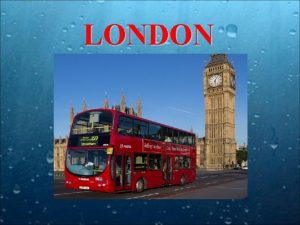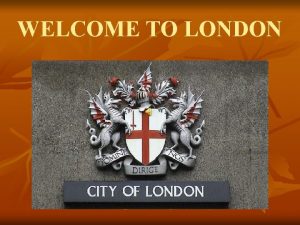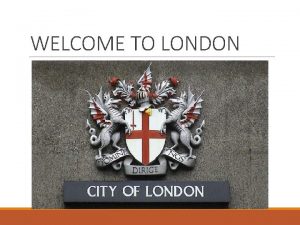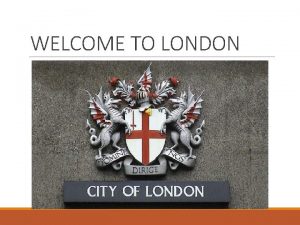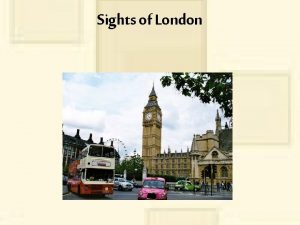London Scrutiny Officers Network Meeting Scrutiny Proposals in

















- Slides: 17

London Scrutiny Officers Network Meeting. Scrutiny Proposals in the Strengthening Local Democracy Consultation Helen Moores 16/09/2009

Presentation Summary Strengthening Local Democracy • The Consultation • Background • Scrutiny – Current Position • Scrutiny Proposals • Next steps • Your views on the scrutiny related questions 2

Strengthening Local Democracy Consultation Background Building Britain’s Future -Aims to make Britain a “fairer, stronger and more prosperous society”. Building on empowerment agenda – set out in 2008 Communities in Control: real people, real power 3

Strengthening Local Democracy Consultation • Four main areas: • Scrutiny/decision making • Tackling climate change • Sub-regional working • Central/Local Relations 4

Scrutiny - Current Position • 2007 Act & Local Authorities (Overview and Scrutiny Committees) Regulations 2009 - came into force on 12 August 2009 • Local Democracy, Economic Development and Construction Bill • • Joint Overview and Scrutiny Committees Designated Scrutiny Officer • Strengthening Local Democracy Consultation • “For scrutiny to really punch its weight, there needs to be a strong connection between scrutiny committees and local people” 5

Strengthening Local Democracy Consultation Strengthening Scrutiny Powers Councils as local point of accountability for services across their area. Range of measures to promote democratic renewal and strengthen the power and responsibility of local government by: • Strengthening councils ability to lead and co-ordinate services in their areas. We propose to give councils more scope to scrutinise the spending and decisions of local service providers. • Explore whethere are barriers to existing powers and whethere are other powers which councils should have. 6

Widen the bodies subject to scrutiny We want to examine whether the scope of scrutiny powers should be increased so that they cover all of the issues that matter to the local community. Issues that matter to local people often go beyond the scope of Local Area Agreements and relate to organisations other than those who are responsible for delivering the priorities set out in the LAA – for example: • Local Transport Providers • Utility Companies 7

Attendance at scrutiny meetings • Enhance scrutiny powers by: • Officers and board members could be required to appear in front of the committee This was a common theme in responses to the Improving Local Accountability consultation 8

Reports and Recommendations • Enhance scrutiny powers by: • Enabling scrutiny committees to make reports and recommendations to a wider range of bodies for their consideration, and those bodies could be required to have regard to the recommendations and formally respond to scrutiny committees. • Currently there is only a requirement on LAA partners to ‘have regard’ to recommendations. 9

Making scrutiny work more effectively • Place a duty on council chief executives to ensure that committees have adequate resources to carry out their work. • Ranking the position of scrutiny chair of certain O&S committees in the authority on a par with a cabinet post. • Involvement of executive members in the scrutiny of local public services. 10

Chapter 4 - Sub-regional working and Joint Overview and Scrutiny Committees • Authorities could use JOSCs to establish a committee to scrutinise the activity of local authorities working together at the sub-regional level. • Joint overview and scrutiny committee proposals: • Require the activity of sub-regional partnerships to be subject to scrutiny. • Enable JOSCs to require sub-regional structures and their partners to provide them with a broader range of information and to consider their recommendations on sub-regional matters. 11

Next steps • Your feedback is extremely valuable. Discussions and issues highlighted at consultation events will be taken into account alongside formal responses. • The Secretary of State for Communities and Local Government is taking a strong personal interest in driving this agenda forward. • Views are crucial to ensuring that work progresses in the right direction. 12

Consultation details Consultation launched – 21 July Consultation closes – 2 October Consultation responses to be sent to – localdemocracyconsul@communities. gsi. gov. uk Government response – to be published Winter 2009 http: //www. communities. gov. uk/publications/localgovernment/ localdemocracyconsultation 13

Questions Helen Moores Communities and Local Government Local Governance 3/J 1 Eland House Bressenden Place London, SW 1 E 5 DU 020 7944 6148 helen. moores@communities. gsi. gov. uk 14

Strengthening Local Democracy – Scrutiny Questions 1. Do you agree that we should extend scrutiny powers in relation to Local Area Agreement (LAA) partners to cover the range of their activities in an area, not just those limited to specific LAA targets? 2. Do we need to make scrutiny powers more explicit in relation to local councils’ role in scrutinising expenditure on delivery of local public services in an area? If so, what is the best way of achieving this? 3. Do you agree that we should bring all or some of the local public services as set out in this chapter fully under the local authority scrutiny regime? Are there other bodies who would benefit from scrutiny by Local Government? 4. How far do you agree that we should extend scrutiny powers to enable committees to require attendance by officers or board members of external organisations to give evidence at scrutiny hearings, similar to the powers already in existence for health and police? 15

Strengthening Local Democracy – Scrutiny Questions continued 5. What more could be done to ensure that councils adequately resource and support the local government scrutiny function to carry out its role to full effect? 6. How can council leaders ensure that scrutiny is a core function of how their organisations do business and have a full and proper role in scrutinising the full range of local public services? 7. What more could be done to better connect and promote the important role of local government scrutiny to local communities, for example, citizens as expert advisers to committees? 17. Should the activity of sub-regional partnerships be required to be subject to scrutiny arrangements? 16

Strengthening Local Democracy – Scrutiny Questions continued 18. Should councils’ joint overview and scrutiny committees be able to require sub-regional bodies to provide them with information on the full range of their activities and to consider their recommendations on subregional matters? 22. Should we give more powers and responsibilities to city- and subregions? If so, what powers or responsibilities should be made available? 23. Is there a need for direct democratic accountability at the sub-regional level? What would be the best means of achieving this, giving consideration to the options set out above? 17
 Title of the study
Title of the study Prefatory part of report
Prefatory part of report Writing and completing reports and proposals
Writing and completing reports and proposals Difference between formal and informal proposals
Difference between formal and informal proposals Artificial intelligence thesis proposals
Artificial intelligence thesis proposals Classification of proposal
Classification of proposal Nature of fire insurance contract
Nature of fire insurance contract Capital investment decision
Capital investment decision Developing effective research proposals
Developing effective research proposals Eclipse computing proposals slow
Eclipse computing proposals slow Delhi muslim proposals
Delhi muslim proposals The scrutiny poem
The scrutiny poem Fairvote
Fairvote Strict scrutiny test
Strict scrutiny test Strict scrutiny test
Strict scrutiny test Michael m v superior court of sonoma county
Michael m v superior court of sonoma county Regulatory procedure with scrutiny
Regulatory procedure with scrutiny Media scrutiny definition
Media scrutiny definition







